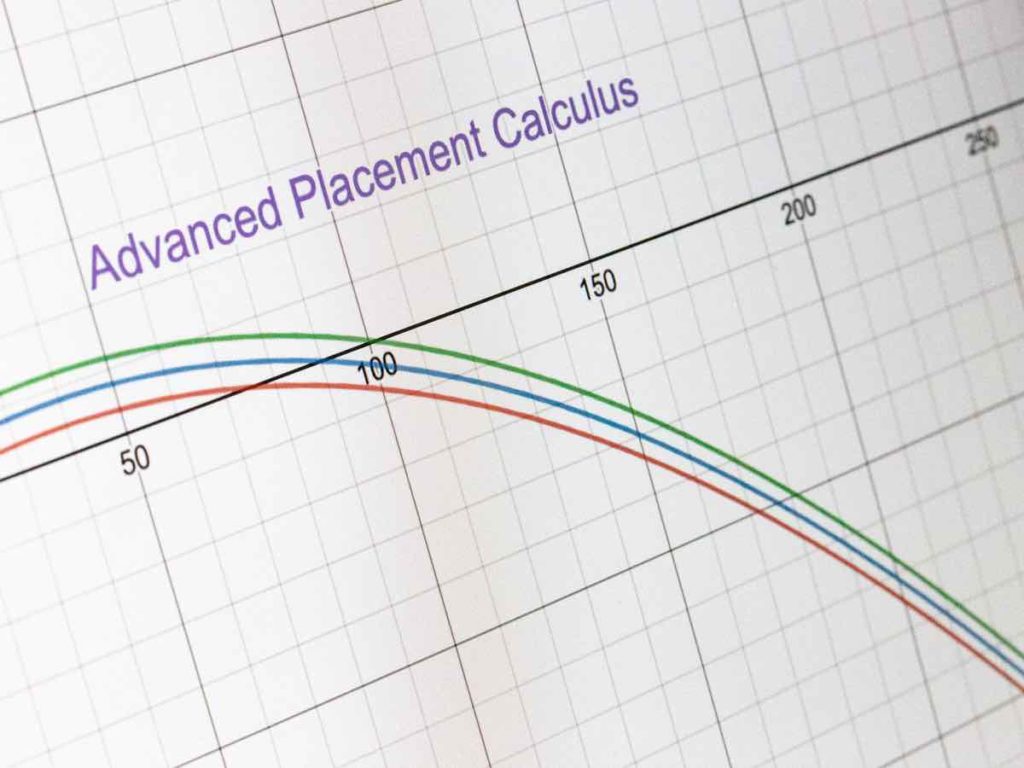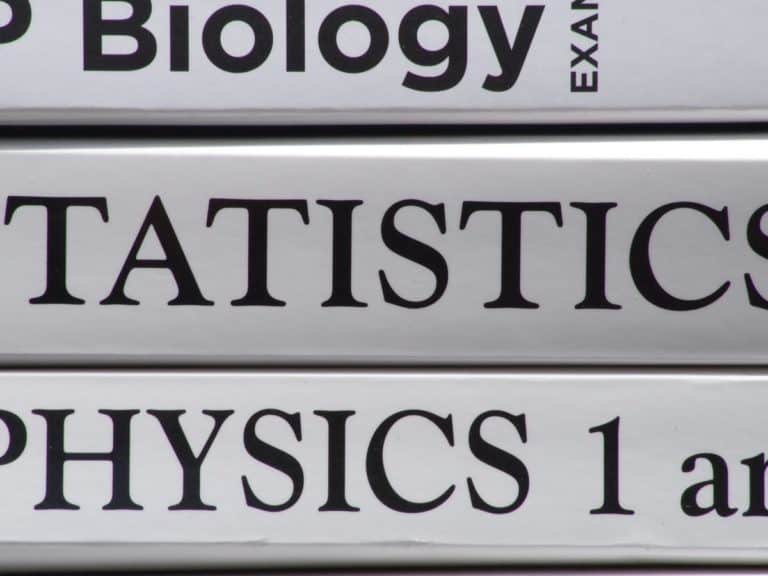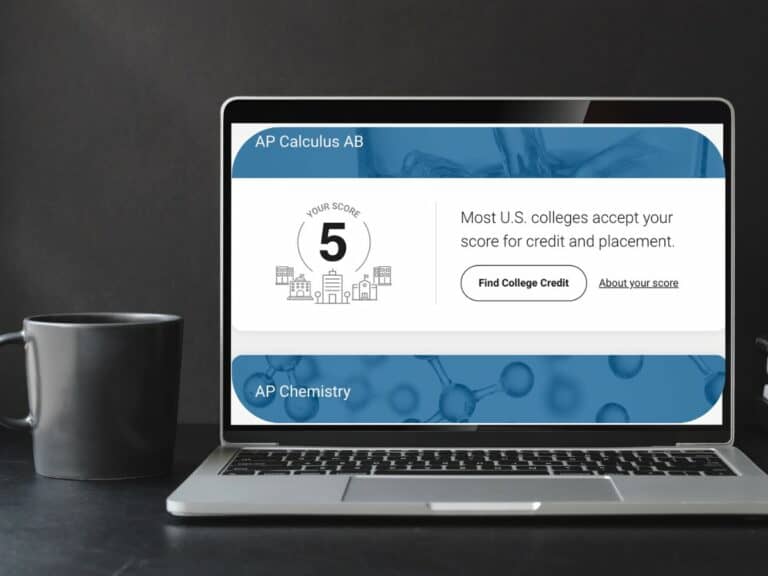Does AP or Dual Enrollment Look Good on College Applications?
Your school offers AP classes and the community college nearby has dual enrollment courses for high school students. And now you may be wondering if taking them is worth your time and energy, given that a teenager like you is perpetually stressed and busy and bound to have a crazy schedule once the college application season comes.
AP or dual enrollment classes look good on college applications. This is especially true if they are challenging and the grades earned by the students who took them are high. In many instances, AP or dual enrollment courses count as college credits, depending on the college or program or score obtained.
Read on if you are wondering about things related to AP and dual enrollment classes — what are the differences, which ones are harder, where they are taken and whether or not they allow for college credits.

How Does AP or Dual Enrollment Affect College Applications?
AP and dual enrollment classes demonstrate an applicant’s readiness for college-level coursework, which can increase the chances of succeeding in college. Taking difficult AP or dual enrollment courses as well as earning high grades in them can have a favorable impact on one’s admissions chances.
There is no denying that the high school GPA is one of the most important admissions factors.
However, when reviewing applications, admissions officers don’t just take a peek at an applicant’s high school GPA and then decide whether or not the student should receive an acceptance letter or a denial letter.
In order to have a much better understanding of an aspirant’s GPA, colleges and universities also check out academic rigor. This is most especially true if the high school uses an unweighted system in which all courses taken, high school and college-level alike, have the same exact weight.
Considering academic rigor makes it easier for admissions officers to determine whether or not an applicant’s performance level is what the college or university is looking for exactly. And when the rest of the academic and non-academic factors are taken into account, too, coming up with a decision can become easier for them.
More institutions in the US have a preference for AP classes over dual enrollment programs. This is true for many private and out-of-state public schools.
However, not all of those that prefer AP classes give college credits for successfully completed ones — some of them do, while others simply allow applicants to take higher-level courses.
On the other hand, many state colleges award college credits for dual enrollment courses.
Whether AP or dual enrollment classes, taking them and earning good grades, too, can make your application stand out from the rest — nothing can prove that you are ready to take on the challenges college offers more than completing college-level courses while still in high school.
Is Dual Enrollment Harder Than AP?
Unlike AP classes, dual enrollment courses do not have standardization. This means that the same class can be difficult at one community college and easy at another. As a result, some dual enrollment courses may be harder than some AP classes. Similarly, some AP classes may be harder than dual enrollment ones.
Some AP classes are harder than the rest. Similarly, some dual enrollment courses are tougher than the rest.
No matter the case, one thing remains true: all AP and dual enrollment courses are more demanding than high school courses, which is why taking them can make your high school curriculum more challenging and essentially impressive, which is what many colleges and universities, especially selective ones, want in applications.
While both are college-level, AP and dual enrollment classes are differentiated by many things.
For instance, AP classes are typically held at high schools where they are taught by high school teachers to high school students. On the other hand, dual enrollment classes are usually held at community colleges where they are taught by college teachers to both high schoolers and college students.
If you feel more comfortable learning in a high school environment surrounded by same-age students, then you may find taking AP courses easier than dual enrollment ones. Meanwhile, if you love learning in a different environment and also among new students, chances are that you may find taking dual enrollment more motivating and exciting.
Typically, AP classes take one full academic year to complete. Meanwhile, dual enrollment courses usually last for one semester only, which means that you could finish two dual enrollment classes in the time it would take you to complete a single AP class.
What are the Best AP Classes to Take?
The best AP classes for high school students to take will depend on which college or university they are planning to attend. It will also depend on which program they like to enroll in or which major they like to declare. In some instances, it’s recommended to take AP classes according to one’s interests.
Planning to fill your college list with prestigious schools? Then consider taking challenging AP courses alongside easier ones in order to have a transcript that’s worthy of an acceptance letter.

Some recommended AP courses to take if you want to be a student at an elite college one day include:
- AP Biology
- AP Calculus AB
- AP Calculus BC
- AP Chemistry
- AP Computer Science Principles
- AP Macroeconomics
- AP Microeconomics
- AP English
- AP French Language and Culture
- AP Physics
- AP Psychology
- AP Spanish Language and Culture
- AP Statistics
- AP US History
- AP World History
Sometimes, it’s not the college or university one plans on attending that should be considered when deciding which AP classes to take. There are instances, too, when it’s a much better idea to take AP classes that have something to do with the desired academic program or major.
Planning on enrolling in a highly competitive engineering program? Then consider taking these AP classes:
- AP Biology
- AP Calculus AB
- AP Calculus BC
- AP Chemistry
- AP Computer Science Principles
- AP Macroeconomics
- AP Physics 1
- AP Physics 2
- AP Statistics
Meanwhile, someone who is considering majoring in business may consider the following AP classes:
- AP Calculus AB
- AP Calculus BC
- AP English
- AP French
- AP Macroeconomics
- AP Microeconomics
- AP Psychology
- AP Spanish
What are the Best Classes to Take in Dual Enrollment?
The best dual enrollment courses can vary from one high school student to the next. Some could benefit from taking dual enrollment courses that their high school curriculum does not offer, while others could benefit from courses that allow them to pursue their interests or discover which majors would suit them.
One of the nicest things about dual enrollment is that it gives high schoolers a firsthand experience of what it’s like to attend college — classes are typically held at community colleges and taught by college teachers.
Don’t forget the fact that dual enrollment also usually involves sharing the classroom with actual college students.
If you are planning on taking dual enrollment courses instead of AP classes, it’s a good idea to consider courses that will allow you to pursue an interest or a life passion. Not only will this make high school stimulating but may also help you determine whether or not it’s something you should consider your major in college.
You may also consider courses that your high school does not offer in order to improve academic rigor and thus make your transcript more appealing to admissions officers, especially at selective institutions.
Some of the most popular dual enrollment courses among college-bound teens include:
- American Government
- Architecture
- Art History
- Biology
- Business
- Child Development
- College Algebra
- Computer Concepts
- Computer Science
- Cultural Anthropology
- Engineering
- English Literature
- Environmental Science
- Fashion
- Geography
- Geology
- History
- Humanities
- Introduction to Business
- Introduction to Psychology
- Mathematics
- Medical Terminology
- Music
- Nutrition Science
- Philosophy
- Physics
- Political Science
- Public Speaking
- Research Writing
- Sociology
- Spanish I
- Trigonometry
- World Regional Geography
What Colleges Accept AP Credits?
Many institutions, public and private alike as well as university systems, accept AP credits. However, some of the most prestigious schools in the US, including the Ivy League schools, do not give credit for AP courses, although many allow students with certain AP scores to enroll in higher-level courses.
Compared to dual enrollment classes, AP classes are preferred more by many colleges and universities in the US.
It’s for the fact that AP classes and exams, too, are standardized, given the fact that the curricula and test questions are developed and created by the College Board, which is the one that administers the SAT.
Because of this, many institutions find it so much easier to put into context AP exam scores, which are on a scale of 1 to 5.
However, it’s important to note that AP classes are taught by high school teachers who, according to the College Board itself, are not required to undergo special training, although it’s highly recommended.
Dual enrollment courses, on the other hand, are taught by college teachers.
Although many colleges and universities give credit to AP courses, there are also those that, as mentioned earlier, do not honor them at all. The majority of them are elite schools such as the Ivy Leagues and those with Ivy-like statuses.
But the good news is that some of these schools allow students with high AP exam scores, usually 4 or 5, to satisfy program requirements or enroll in higher-level courses, which means that they can skip lower-level classes. Still, the rules can vary from school to school as well as from program to program within the same institution.
As of 2020, the following colleges and universities accept AP credits:
- Adelphi University
- American University
- Auburn University
- Baylor University
- Beloit College
- Bennington College
- Black Hills State University
- Boston College
- Boston University
- Bowling Green State University
- Brandeis University
- Brigham Young University
- Bryn Mawr College
- California State University system
- Carleton University
- Carnegie Mellon University
- Central State University
- Chapman University
- Clarkson University
- Cleveland State University
- College of Idaho
- College of Wooster
- Colorado State University
- Concordia University – Irvine
- Cornell University
- Dakota State University
- Davidson College
- Duke Kunshan University
- Eckerd College
- Elon University
- Emory University
- Evergreen State College
- Furman University
- George Washington University
- Georgetown University
- Georgia Institute of Technology
- Georgia Southern University
- Gettysburg College
- Gonzaga University
- Hofstra University
- Hunter College
- Illinois State University
- Indiana Wesleyan University
- James Madison University
- Kansas State University
- Kennesaw State University
- Kent State University
- Lawrence Technological University
- Lawrence University
- Loyola Marymount University
- Marist College
- Marquette University
- Massachusetts Institute of Technology
- Meredith College
- Miami University
- Michigan State University
- Michigan Technological University
- New York University
- Northeast Ohio Medical University
- Northern Arizona University
- Northern State University
- Occidental College
- Ohio State University
- Ohio University
- Oregon State University
- Pacific Lutheran University
- Plymouth State University
- Pomona College
- Purdue University
- Rollins College
- Rutgers University
- Ryerson University
- Saginaw Valley State University
- Saint Anselm College
- Saint Louis University
- Samford University
- Seattle University
- Shawnee State University
- South Dakota School of Mines and Technology
- South Dakota State University
- Southern Methodist University
- St. Olaf College
- Stony Brook University
- Syracuse University
- Temple University
- The Catholic University of America
- The New School
- Tulane University
- Union College
- University of Bath
- University of Akron
- University of California system
- University of Chicago
- University of Cincinnati
- University of Colorado – Boulder
- University of Connecticut
- University of Delaware
- University of Denver
- University of Hartford
- University of Illinois – Urbana-Champaign
- University of Iowa
- University of La Verne
- University of Mary Washington
- University of Massachusetts – Amherst
- University of Minnesota – Twin Cities
- University of Missouri – St. Louis
- University of New Hampshire
- University of Notre Dame
- University of Oklahoma
- University of Pennsylvania
- University of Portland
- University of Rhode Island
- University of Richmond
- University of Rochester
- University of San Francisco
- University of South Dakota
- University of South Florida
- University of Southern California
- University of St. Thomas
- University of Tennessee – Knoxville
- University of Toledo
- University of Toronto
- University of Washington
- University of Wisconsin – Madison
- University of Wisconsin – La Crosse
- Vanderbilt University
- Virginia Tech
- Washington State University
- Wayne State University
- Western Michigan University
- Wheaton College – Massachusetts
- William and Mary
- Worcester Polytechnic Institute
- Wright State University
- Youngstown State University
- Yale University
What Colleges Accept Dual Enrollment Credits?
Many in-state public colleges and universities accept dual enrollment credits. In some states where there’s a statewide dual enrollment policy in place, public institutions are required to honor dual enrollment credits. Private and out-of-state public schools are less likely to accept dual enrollment credits.
As established earlier, many institutions for higher education have a penchant for AP classes rather than dual enrollment because the former has a more standardized form, just like the SAT or ACT.
However, it doesn’t mean that you should opt for AP classes rather than dual enrollment right away.
While it’s true that private colleges and universities as well as out-of-state public institutions are more likely to prefer AP classes and thus give credit to them, there are many public schools that accept dual enrollment credits. As a matter of fact, some of them are required by the law to award college credits to students who took dual enrollment classes.
This is especially true among a lot of in-state public institutions, which is why you might benefit more from dual enrollment classes than AP classes if you plan to earn a degree at a public institution in your state.
But refrain from assuming that private schools do not give credit to dual enrollment classes — some do. However, it goes without saying that elite ones, including the Ivy Leagues, rarely accept them.
Below are the different states (and Washington, DC) and whether they have a statewide dual enrollment program policy and if their public colleges and universities are required to accept dual enrollment credits, according to the most recent data from the Education Commission of the States (ECS):
| STATE | STATEWIDE POLICY | TRANSFERABILITY REQUIRED |
|---|---|---|
| Alabama | Yes | No |
| Alaska | No | No |
| Arizona | Yes | Yes |
| Arkansas | Yes | Yes |
| California | Yes | Unclear |
| Colorado | Yes | Yes |
| Connecticut | Yes | No |
| Delaware | Yes | No |
| District of Columbia | Yes | No |
| Florida | Yes | Yes |
| Georgia | Yes | Yes |
| Hawaii | Yes | Yes |
| Idaho | Yes | No |
| Illinois | Yes | Yes |
| Indiana | Yes | Yes |
| Iowa | Yes | No |
| Kansas | Yes | Yes |
| Kentucky | Yes | Yes |
| Louisiana | Yes | Yes |
| Maine | Yes | Unclear |
| Maryland | Yes | No |
| Massachusetts | Yes | No |
| Michigan | Yes | No |
| Minnesota | Yes | No |
| Mississippi | Yes | Yes |
| Missouri | Yes | Yes |
| Montana | Yes | Yes |
| Nebraska | Yes | No |
| Nevada | Yes | Yes |
| New Hampshire | No | No |
| New Jersey | Yes | No |
| New Mexico | Yes | Yes |
| New York | No | Unclear |
| North Carolina | Yes | Yes |
| North Dakota | Yes | Yes |
| Ohio | Yes | Yes |
| Oklahoma | Yes | Yes |
| Oregon | Yes | No |
| Pennsylvania | Yes | No |
| Rhode Island | Yes | Unclear |
| South Carolina | Yes | Yes |
| South Dakota | Yes | No |
| Tennessee | Yes | Yes |
| Texas | Yes | Unclear |
| Utah | Yes | Yes |
| Vermont | Yes | Unclear |
| Virginia | Yes | No |
| Washington | Yes | Yes |
| West Virginia | Yes | Yes |
| Wisconsin | Yes | Unclear |
| Wyoming | Yes | Yes |
What Happens If You Fail AP or Dual Enrollment Courses?
Getting failing grades in AP or dual enrollment courses can lower the high school GPA. This is especially true since AP classes or dual enrollment programs are weighted. In addition, bad AP or dual enrollment grades will appear on the transcript, which can have an impact on the admissions outcome.
It’s true that earning AP or dual enrollment credits can boost academic rigor — and this is a good thing, especially if you are planning on applying to a competitive college or university.
However, it’s also important to note that taking college courses in high school can also do more harm than good.
This is particularly true if you fail to get a passing grade — it will keep you from enjoying college credits as well as a good high school GPA. Just like high school course grades, AP and dual enrollment course grades will count toward your GPA. They will also follow you around as they will be included on your high school transcript.
Earlier, we mentioned that you should consider the school you will apply to and/or the program you will enroll in or the major you will declare when choosing which college-level courses to take.
But don’t just choose AP or dual enrollment classes according to these deciding factors — it’s also a good idea to take your interest or passion in life into account. This will keep you engaged with your classes, thus making it easier to get good grades. In deciding which classes to opt for, you may also choose based on your existing knowledge and skills.
Have a plan on which career path to take? Then grab the opportunity to have a much better idea of whether or not it’s the right one for you before you actually attend college by choosing related AP or dual enrollment courses.
Picking the right college-level classes is not enough.
It’s also a definite must that you manage your time very well and stay motivated and disciplined in order to pass them.
Because you will be taking both regular high school courses and advanced college courses, you can be certain that you will have to face more challenges than your classmates who choose to opt out of the AP or dual enrollment experience.
Just Before You Take College Classes in High School
There is no denying that both AP classes and dual enrollment programs can boost academic rigor and thus make your college application look better. However, it doesn’t necessarily mean that you will automatically enjoy college credits — it will depend on the grade or score you get as well as the college or university you enroll in.
If you are planning on attending a private or public out-of-state school, consider taking AP classes.
Meanwhile, if you are thinking about filling your college list with mostly state colleges, then it’s a much better idea to take dual enrollment courses instead.
But don’t forget the importance of also considering factors such as accessibility, your schedule, budget and the kind of experience you wish to get from taking college courses in high school. Always keep in mind that AP and dual enrollment grades will affect your high school GPA and also appear on your transcript.
Disclaimer: The views and opinions expressed in this article are those of the authors and do not necessarily represent those of the College Reality Check.





